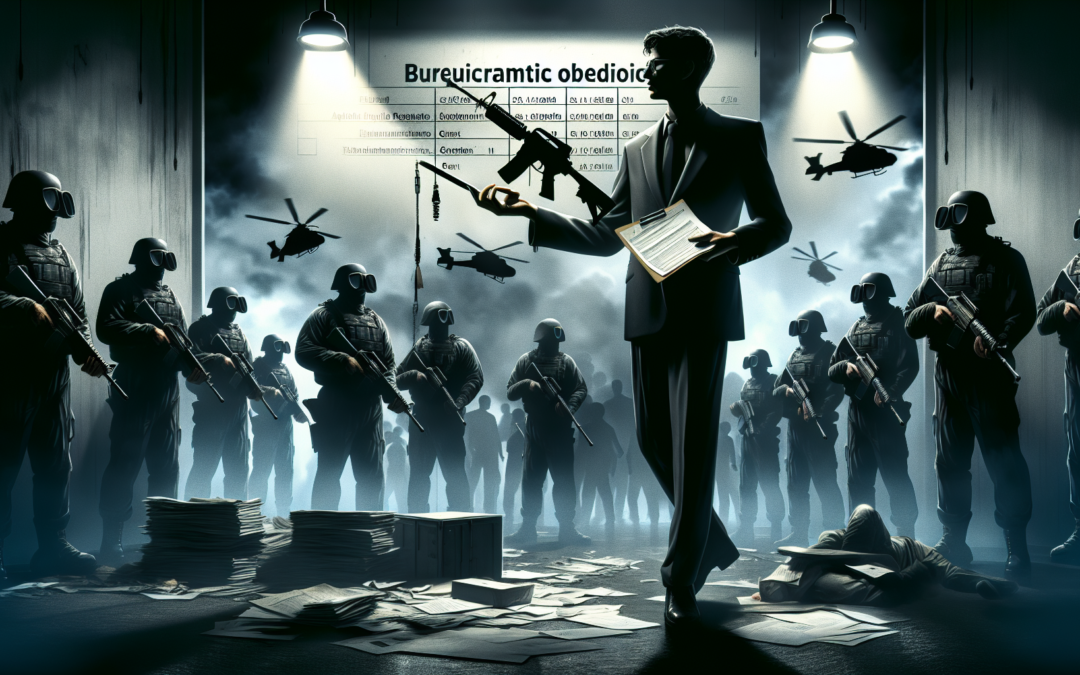The Relentless Audacity of a First Amendment Auditor and the Steadfast Resolve of Law Enforcement
In the realm of modern-day confrontations, few encounters are as incendiary as those between law enforcement officers and self-proclaimed First Amendment auditors. These individuals stride into public spaces with cameras rolling, zealously exercising their right to free speech—often to the point of provocation. They seek out hapless officials, hoping to spark viral moments that can catapult them to online infamy. Left behind in the recursive shadows of these encounters are the uniformed men and women who bear the brunt of this test, standing resolutely as guardians of public decorum and spirit.
Last week’s episode of “The John Ligato Show” threw a stark spotlight on one such confrontation, wherein a particularly aggressive auditor took center stage. The scene unfolded in a mundane yet pivotal setting: the quiet corridors of a public office. With his camera thrust forward like a weapon, the auditor exuded intentions far more sordid than mere observation. It was an intentional act of baiting, a theatrical goad aimed at riling the officers on duty.
As the high-definition lens roved over bulletin boards and down hallways, capturing every square inch of the entryway, those tasked with ensuring the security and regular functions of this government space faced an ethical quagmire. On one end of the spectrum were the auditor’s constitutionally protected activities, and on the other was the obligation to prevent chaos, maintain privacy, and uphold the sanctity of this shared common area. The officers had neither assembled for applause nor prepared themselves for online scrutiny; they were simply doing their jobs. Yet, in the micro-expressions of their faces — riven by deep lines of concern and steeled resolve — the weight of their responsibility to our principles was achingly clear.
The spotlight of John Ligato’s lens did far more than capture this tense exchange. It encapsulated the raw humanity and perpetual vigilance that defines police work. Dealing with an auditor who sees himself as an avant-garde provocateur becomes more than a public service; it becomes a test of nerves and professionalism. Tasked with maintaining decorum, police officers must remain unflinching, drawing from a deep well of respect for civil liberties and constitutional rites while preserving a semblance of public order. It is an odyssey paved with moments that demand near-superhuman patience and restraint.
With voices raised and confrontation imminent, the episode unfolded like a modern-day morality play, doubling as both a historical interpretation and contemporary crisis. It revealed not just the glaring bravado of the auditor but, poignantly, the measured responses of the law enforcement officers he targeted. YouTube algorithm clicks and virtual likes mattered less to these dedicated men and women than the principles they had sworn to defend. Witness here the nuanced performances of duty as an agitated public consumed, critiqued, and speculated over each officer’s response.
Watch the full episode on The John Ligato Show here
Policing landscapes fraught with amorphous expectations and constant vigilance against digital-age provocations has become the new normal. For seasoned officers, this circus is entrenched, their mottled narratives replayed in differing shades of disturbance and determination. Yet, every new encounter retains its capacity to upend years of disciplined training and quiet service. Take note of the officer in this confrontation who exemplified a calm tempered by decades of on-the-ground wisdom. He didn’t raise his voice or brandish his taser. His words were chosen with precision, his demeanor underscoring his reluctance to escalate rather than his capacity for coercion.
This wasn’t a stage for heroism, but rather an indictment of our digitally-enflamed culture where rights are leveraged as a social currency just as frequently as they are cherished. A camera in an auditor’s hands is an ambivalent symbol: it denotes free press, a scrutiny of power, but equally the potential corrosion of respectful discourse and civic harmony.
Our fast clips and soundbites miss the flickers of bravery rooted in such encounters. Scores register only fraught visuals, sidelining conversations on ethics, canons, and codes that officiate our force’s conduct. Law enforcement ideals often emerge bruised yet unwavering from these confrontations, transcending beyond mere clashes into a reaffirmation of the duties enshrined upon an officer’s oath.
Amid the ensuing fervor, dialogue surmounted spectacle towards the end of this confrontation. The auditor grasped for an “Aha!” moment that stayed out of his reach, which in itself proved to be a quiet triumph for the officer’s restraint and professionalism. He reminded us that within every regular beat—every quiet doorway assignment and unspectacular hallway exchange—law enforcement officials invest in preserving a fragile and invaluable balance: the harmony between personal liberty and collective security.
The true measure of an officer is not brought forth by televised arguments or a cacophony of dissenting voices online. It is, instead, most eloquently expressed in encounters such as these where, far removed from the applause or notoriety, diligence and decency stand as our firmest first—and last—line of defense against the tyrannies of silence, chaos, and confusion.
For those inspired to delve deeper or follow John Ligato’s perceptive presentations, visit his Facebook page or subscribe to his YouTube channel. These platforms provide uncommon windows into the sacrifices and stories that often live just beneath the veneer of public perception.
In the battleground of our nation’s streets and corridors, a badge signifies much more than authority—it symbolizes the eternal sentinel spirit of American freedom, determinedly anchoring us against oblivion.

Recent Comments